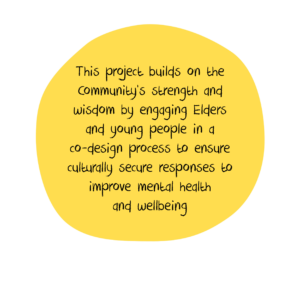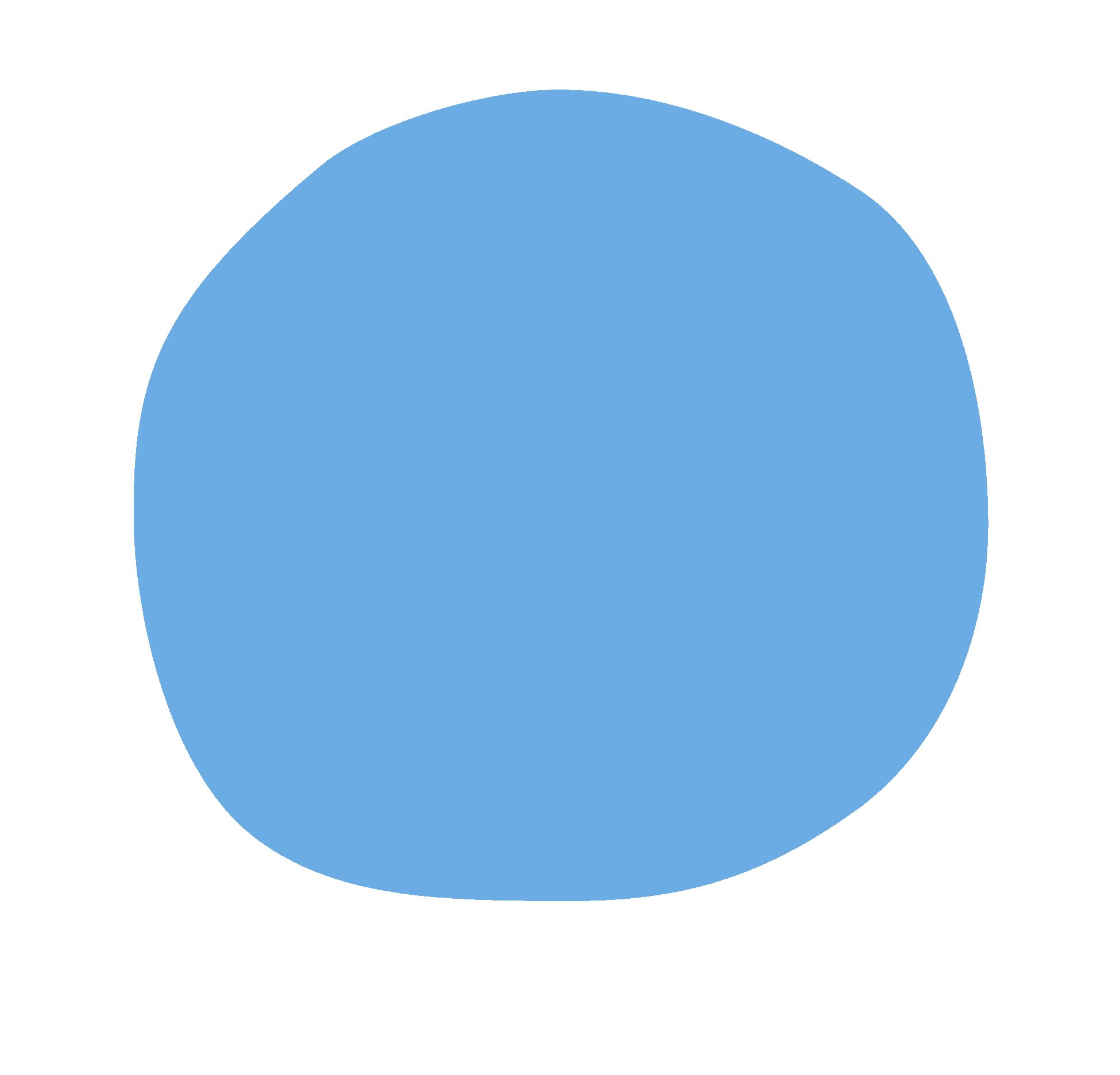The COVID-19 pandemic has again highlighted that Aboriginal peoples hold the solutions to their own health and wellbeing. In Western Australia, Aboriginal Community Controlled Organisations and local Community-led responses to COVID-19 have resulted in very low rates of infection and no loss of life to date. The Community response to COVID-19, therefore, demonstrates that when self-determination is evident, outcomes are vastly improved.
This project builds on the Community’s strength and wisdom by engaging Elders and young people in a co-design process to ensure culturally secure responses to improve mental health and wellbeing.
The project is funded by the Western Australian Government, Department of Jobs, Tourism, Science and Innovation and aligns with the State and Federal Government’s commitment to formal partnerships and shared decision making with Aboriginal peoples.

About the project
Whilst co-design has been identified as a clear way forward to Closing the Gap, most non-Aboriginal people have little or no understanding of what co-design means from an Aboriginal worldview. Through meaningful engagement in a co-design process grounded in Aboriginal ways of working, this research aims to deliver improved mental health and wellbeing for Aboriginal peoples living in Western Australia. The co-designed ethical decision-making framework—directed and held by the cultural wisdom of Elders—will inform culturally appropriate responses to mental health issues.
This Aboriginal-led research project is a dynamic collaboration between Curtin University and the University of Western Australia, drawing on the substantial expertise of Aboriginal health researchers across both universities. The project will involve significant engagement and collaboration with Elders and Communities, who will provide the cultural authority and knowledge essential to the co-design process.
Project Aims
The project will:
1. Deliver a co-designed ethical decision-making framework developed with Elders, young people and senior staff in non-government community organisations.
2. Pilot and evaluate the implementation of the co-designed ethical decision-making framework in nominated region/s based on the co-design efforts of all participants.
3. Provide the Western Australian Government and mainstream non-government community services with a clear process for meaningful co-design with relevance to all departments and organisations delivering services to Aboriginal peoples.
4. Very importantly, the co-design process will provide a significant professional and personal development opportunity for senior non-government staff, building their confidence and capacity to build relationships with Aboriginal Communities to deliver on Community identified priorities.
5. Ultimately, the project aims to improve the social and emotional wellbeing of Aboriginal people, their families, and Communities in Western Australia.
Impact
The team recently published a peer-reviewed article in the Qualitative Social Work journal, in a special issue about Indigenous Social Work.
Wright, M., Webb, M., Davis, C., Councillor, B., Ramirez-Watkins, A., Jones, T., Fielder, J., Guima Chenin, T., & O’Connell, M. (2024). Co-designing a relational ethical decision-making framework with Aboriginal Elders and young people to address health inequities. Qualitative Social Work: Research and Practice. https://doi.org/10.1177/14733250241300728.
The findings suggest that this co-designed ethical decision-making framework can be used to implement ethical standards and embed more authentic culturally safe practices and processes by developing meaningful relationships with First Nations People and Communities.
As one of the project Elders told us:
“If you want to work with Aboriginal people, be honest and then you’ll win their trust and then you can carry on and start your process, but always start from the grassroots.”
Read a copy via our Publications page.
Project Team
Project leads
Associate Professor Michael Wright
Professor Pat Dudgeon
Professor Helen Milroy
Professor Sandra Eades
Project Staff
Cheryl Davies
Beverley Councillor
Ashton Ramirez Watkins
Dr Michelle Webb
About the project leads
Associate Professor Michael Wright is a leader in drug and alcohol and mental health research and has, with Nyoongar Elders, developed a culturally secure co-design process held by Aboriginal ways of working. Michael is a Yuat Nyoongar man from the Moora and New Norcia area of WA.
Michael will lead the project alongside Professor Pat Dudgeon, Director of the Aboriginal Suicide Prevention Evaluation Project and UWA’s Centre for Best Practice in Aboriginal and Torres Strait Islander Suicide Prevention, Professor Helen Milroy, Chair in Child Mental Health, Faculty of Health and Medical Sciences, Psychiatry, UWA and National Mental Health Commissioner, and Professor Sandra Eades from Curtin University.
Professor Dudgeon is is from the Bardi people of the Kimberley in Western Australia and is a leading Indigenous mental health expert whose strengths include Participatory Action Research. As the Director of the Centre for Best Practice in Aboriginal and Torres Strait Islander Suicide Prevention her work has focused on community empowerment and establishing Indigenous governance systems in suicide prevention.
Professor Milroy brings extensive expertise in the application of Indigenous knowledge, cultural models of care, Aboriginal health and mental health, and developing and supporting the Aboriginal medical workforce.
Professor Sandra Eades, Dean of Curtin Medical School is a physician and epidemiologist. Professor Eades is a Nyoongar woman from Mount Barker, Western Australia. Professor Eades’ focus on child and family health will bring a great deal to the co-design process, ensuring that the public health implications for Aboriginal families are accounted for in the study.

""Being on the same page as one another- they have to accept that they’re going to be wrong…that they are not going to know things, they have to be ready to learn. You cannot sit back and say I had a conversation with an Aboriginal person once and then tick a box -this takes months, it takes time to know and understand a person or people""
- Youth Co-researcher

